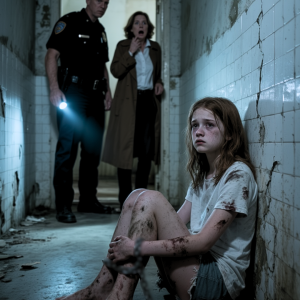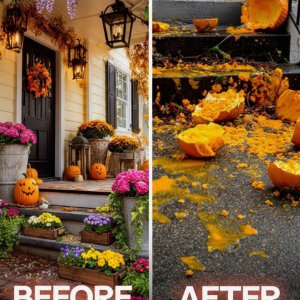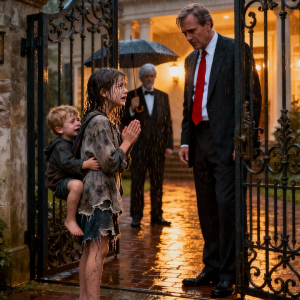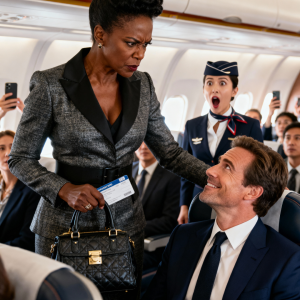
My name is Laura Preston, and I never thought of myself as anyone special. I was just a tired, grieving single mother trying to keep my little family afloat. My husband, Peter, had passed suddenly from an aggressive illness while I was pregnant with our son, Leo. His death left a hollow ache that nothing could fill, but bills, rent, and feeding a newborn didn’t wait for grief. I worked two cleaning jobs, often overnight, scrubbing office floors in the towering Northfield Plaza, where executives made decisions about lives I could never imagine living.
That morning, winter had frozen Chicago in a bitter grip. My fingers ached despite gloves, and my lungs burned with each shallow breath as I trudged home. The streets were nearly empty, and the city’s usual hum was muted under a fresh layer of snow. Every step was a reminder of exhaustion pressing against my bones.
Then I heard it—a faint, desperate cry.
At first, I thought I was imagining it, until the sound came again: soft, terrified, and fragile. I followed it to a small bus shelter, and my heart nearly stopped. There, curled beneath a thin, grimy blanket, was a newborn baby, shivering violently. No mother. No note. Nothing but a life at the edge of disaster.
Without thinking, I removed my own coat and wrapped it around the infant, pressing him close to my chest. Heat from my body seeped into his frozen limbs. “You’re safe now,” I whispered, though I wasn’t certain if that was true. “I’ve got you.”
I ran home through snow and ice, cradling him as carefully as I could. My mother-in-law, Gloria, gasped when I opened the door. Together, we warmed him, fed him, and called the authorities. When the police finally arrived to take him into their care, I felt a hollow ache—as if letting him go had ripped open a piece of my heart I didn’t know I had left.
That evening, my phone rang. A calm, commanding voice spoke:
“Mrs. Preston? My name is Henry Caldwell. The baby you found is my grandson. Please meet me at my office this afternoon.”
My legs went weak.
I arrived at Caldwell Enterprises, a skyscraper I had cleaned countless times, feeling invisible among people who never noticed me. But this time, when I gave my name at the front desk, the guard’s eyes softened. I was led into a private elevator and up to the top floor, where sunlight poured through floor-to-ceiling windows. There he was: Henry Caldwell, CEO and patriarch, silver hair framing a kind but burdened face.
“You saved him,” he said gently. “Not everyone would stop. Not everyone would care.”
He explained that his son, Oliver Caldwell, and his wife, Marina, had recently had a baby boy. After childbirth, Marina fell into severe postpartum depression. She felt unseen, unloved, and overwhelmed—especially after discovering Oliver’s infidelity. One night, she left their home, walking through the dark city with the baby, unsure of what to do. At the bus stop, she stopped. And then, in a moment of despair, she left him there, hoping someone else might care.
I listened, stunned. If I hadn’t passed by, Leo’s new friend, little Noah, would not have survived the frost.
Henry asked me about my life, and I told him about Peter, about working two jobs, about raising Leo alone. He didn’t pity me. Instead, there was respect, deep and quiet, like he understood how much I had already carried.
A week later, I received a letter. My tuition for a professional business program had been fully covered, along with a note from Henry:
You saved my grandson. Let me help you save yourself.
For the first time in years, I felt hope. Nights were long—balancing classes, work, and parenting—but I had a future. Henry supported me, not with pressure, but with guidance and steady encouragement.
When I graduated with honors, he promoted me to manager of a new childcare initiative at his company, designed for working parents like me. Suddenly, I walked through the same building where I had once mopped floors, now carrying my son, Leo, past colleagues who recognized my name and my worth. Little Noah and Leo grew up together, safe and happy, laughter filling rooms that once only echoed with stress. Marina recovered gradually, with therapy and support, learning to be a mother again.
One afternoon, as I watched the boys play in a sunlit room, Henry said softly:
“You didn’t just save Noah. You helped bring my family back together.”
I smiled at him, tears brimming. “And you gave me a chance to live again.”
Snow began to fall lightly outside, echoing that morning when everything had changed. But now, there was warmth, peace, and laughter. All because one person stopped to care.
Sometimes, the simplest act of compassion can transform lives. Please share this story, and remind someone that kindness still matters.




